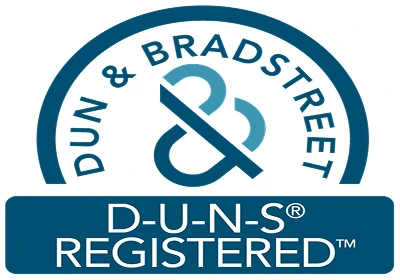Industrial Automation and Machinery Published Insights
Published Date : 08 Feb, 2026
The global operational predictive maintenance market refers to the market that focuses on providing technologies, solutions, and services aimed at proactively monitoring and maintaining the operational health of equipment and assets in various sectors. Operational pre... View more
Published Date : 08 Feb, 2026
The global projection mapping systems market is estimated to be valued at USD 4.15 Bn in 2025 and is expected to reach USD 10.67 Bn by 2032, exhibiting a compound annual growth rate (CAGR) of 14.4% fr... View more
Published Date : 08 Feb, 2026
The global machine tools market has been witnessing steady growth over the past few years. Machine tools are equipments or set of machines that fashion or shape metal or other rigid materials through processes like cutting, drilling, boring, grinding, and others. They... View more
Published Date : 08 Feb, 2026
The global brush hog rental market is estimated to be valued at USD 91.4 Mn in 2025 and is expected to reach USD 108.6 Mn by 2032, exhibiting a compound annual growth rate (CAGR) of 2.5% from 2025 to ... View more
Published Date : 08 Feb, 2026
The global scissor lift rental market is estimated to be valued at USD 3.72 Bn in 2025 and is expected to reach USD 5.52 Bn by 2032, exhibiting a compound annual growth rate (CAGR) of 5.8% from 2025 t... View more
Published Date : 08 Feb, 2026
Glasses free 3D display technology provides a stereoscopic 3D visual experience to the viewer without wearing any glasses. This innovative 3D display allows the user to perceive images with correct depth perception and motion parallax. Recent advancements in this fiel... View more
Published Date : 08 Feb, 2026
A ground station is a physical facility with a computer that acts as the hub for the communication between a spacecraft and terrestrial networks. The satellite and the ground station use software to communicate, control the antennas, schedule passes and interface with... View more
Published Date : 08 Feb, 2026
The global digital thread market is estimated to be valued at USD 13.62 Bn in 2025 and is expected to reach USD 47.12 Bn by 2032, exhibiting a compound annual growth rate (CAGR) of 19.4% from 2025 to 2032. The market ... View more
Published Date : 08 Feb, 2026
Filling machines are the packaging machinery that dispenses liquid, powder, granule, and paste products. These machines are widely used in various industries such as food, beverages, chemical, and pharmaceuticals. Depending on the products, there are several types of ... View more
Published Date : 08 Feb, 2026
The global welding gloves market is estimated to be valued at USD 1.83 Bn in 2025 and is expected to reach USD 2.59 Bn by 2032, exhibiting a compound annual growth rate (CAGR) of 5.1% from 2025 to 203... View more
Published Date : 08 Feb, 2026
The global heat treatment market is estimated to be valued at USD 107.82 Bn in 2025 and is expected to reach USD 143.80 Bn by 2032, exhibiting a compound annual growth rate (CAGR) of 4.2% from 2025 to... View more
Published Date : 08 Feb, 2026
Thermoelectric Peltier modules provide improved thermal insulation of vital electronics to ensure optimal performance while addressing thermal issues in vehicle heads-up displays (HUDs) and infotainment systems. The complexity of operations of these newly developed in... View more
Published Date : 08 Feb, 2026
Blast chillers are innovative appliances designed to rapidly and safely lower the temperature of hot food to minimize bacterial growth and maintain food quality. These devices are crucial in professional kitchens, catering services, and food production facilities wher... View more
Published Date : 08 Feb, 2026
The Global Positioning Systems Market is estimated to be valued at USD 117.42 Bn in 2025 and is expected to reach USD 337.91 Bn by 2032, exhibiting a compound annual growth rate (CAGR) of 16.3% from 2... View more
Published Date : 08 Feb, 2026
Overview Robotics System Integration is a method of programming and supplying industrial robots so that they can perform the task of manufacturing automatically. The key trend which fuel the robotics system integration market is increasing demand of application specific industrial robots. Due to pr... View more
Published Date : 08 Feb, 2026
The global milking machine market is estimated to be valued at USD 5.37 Bn in 2025 and is expected to reach USD 8.18 Bn by 2032, exhibiting a compound annual growth rate (CAGR) of 6.2% from 2025 to 2032. The global mi... View more
Published Date : 08 Feb, 2026
The global air compressor market is estimated to be valued at USD 27.43 Bn in 2025 and is expected to reach USD 38.85 Bn by 2032, exhibiting a compound annual growth rate (CAGR) of 5.1% from 2025 to 2032. The global a... View more
Published Date : 08 Feb, 2026
Global high pressure processing equipment market has been gaining significant traction over the past few years. High pressure processing (HPP) is an emerging non-thermal food processing technology that utilizes hydropneumatic pressure to preserve and enhance the quali... View more





